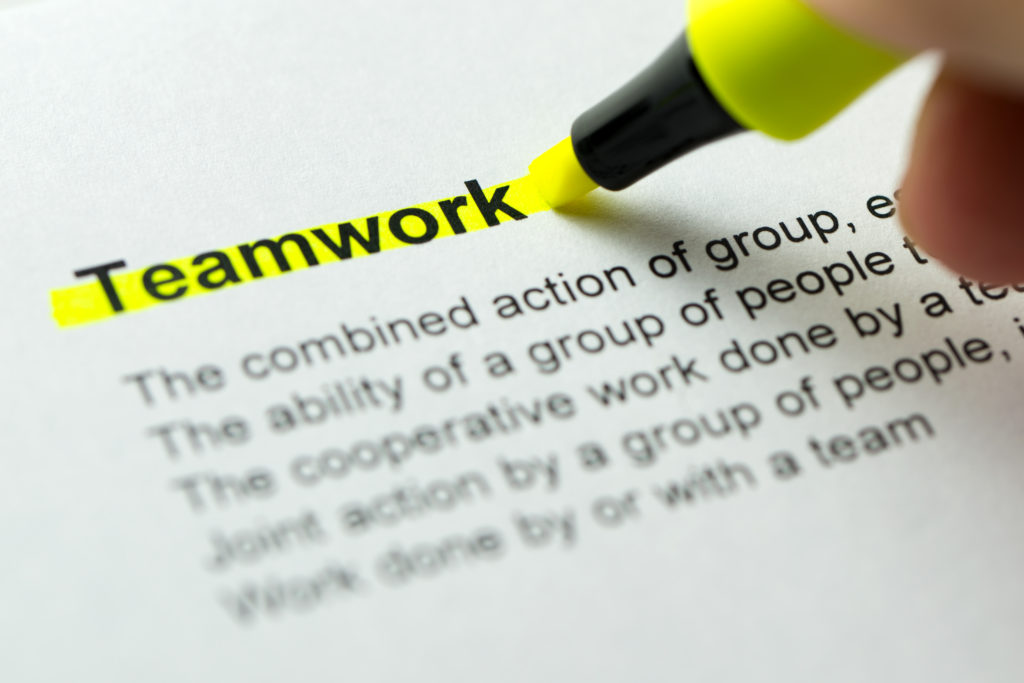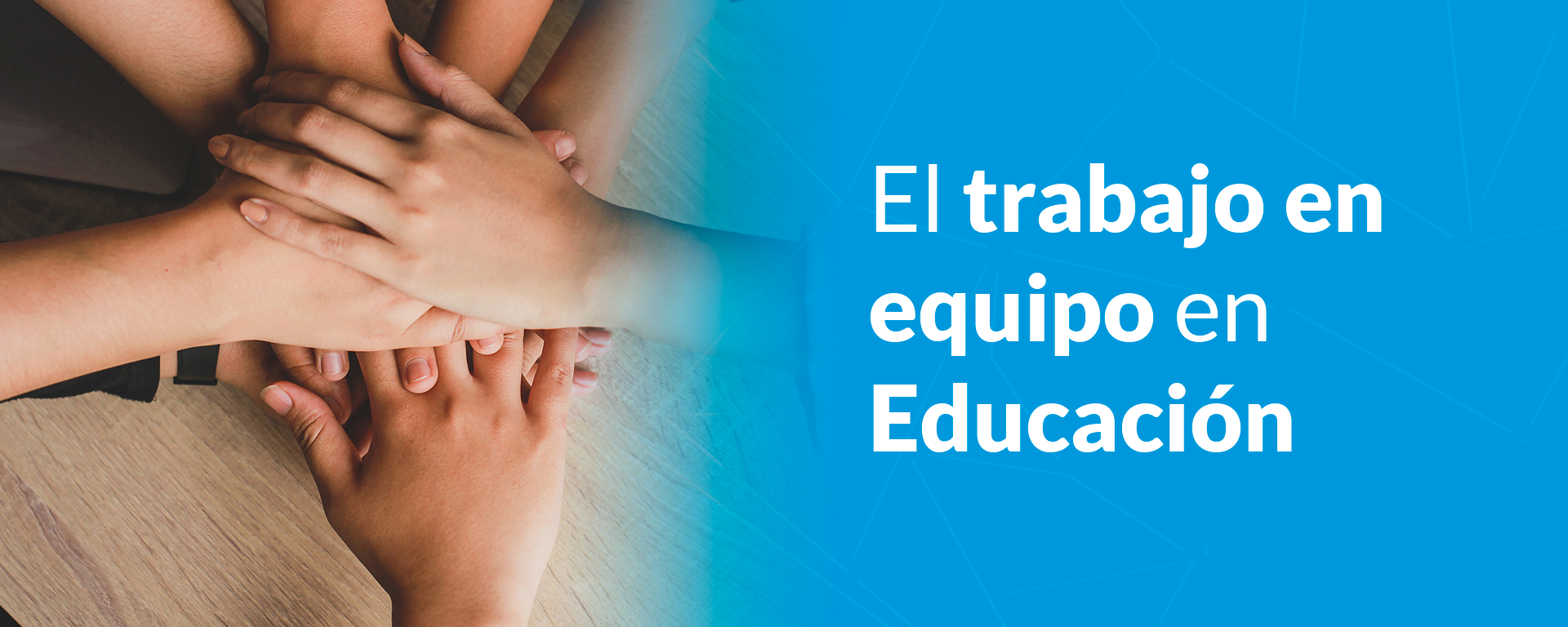Trabajo en equipo, ¿qué es?
Teamwork implies that each member will contribute his or her individual experience, competencies and social and communication skills. In this way, together with the efforts of others and through consensus, the common goal is achieved.
This group work implies synergy among team members and not only the sum of their individual efforts. This will require from each of them a series of communication skills to be able to listen and understand the point of view of their peers. During group work, each member must value the capabilities of the peers (encultured knowledge) and develop a relationship of trust and empathy among them allowing to discuss any discrepancies that may arise on the way to achieving the objectives. Thus, it can be seen that it is important to work on emotional education and soft skills.

Factores a tener en cuenta para el trabajo en equipo
When forming a team for its members to carry out group work, it is important that the selection of members does not respond only to academic or random criteria (as is most often the case). In this way, a series of variables must be taken into account to guarantee its correct functioning:
- Composition of the team. A number of members per team should be established that allows coordination and does not favor the emergence of sub-groups within the team. We recommend teams of 4 members.
- Heterogeneity in terms of gender, level of interest, ability to collaborate, individual characteristics, etc.
- Team Roles Theory. It is essential that each team member has a role within the team that he or she feels comfortable with in order to increase his or her confidence and ensure the efficiency of the teamwork. In this way, within the same team there will be people in charge of leading and coordinating the rest of the members, organizing tasks and resources; while others will take on providing those resources to the team, implementing the actions defined, intervening to avoid conflicts, etc...
Cómo aplicar el trabajo en equipo en la educación
Meaningful Challenge-Based Learning (ABR) is a methodology that fosters collaborative learning and teamwork in the classroom. The approach of different activities through this type of learning allows students to work together. In this way, by focusing their knowledge and skills in common, they provide solutions to real problems, connecting education with the reality in which we live.

En BeChallenge tenemos nuestro propio método de Aprendizaje Basado en Retos (ABR), en el cual el aprendizaje colaborativo es un pilar esencial. Se trata de un método compuesto por diferentes modalidades 7 fases, 5 fases o 3 fases (3 fases, si se elige un reto express), siendo la segunda de ellas la formación de un equipo de personas que trabajarán juntas para dar respuesta a los diferentes problemas que se planteen. De esta forma, juntos deberán entender el problema que se propone, investigar sobre él para conocerlo en profundidad y aportar y poner en común sus conocimientos previos sobre el tema. Una vez hecho esto, escucharán sus diferentes puntos de vista respecto del problema y las posibles soluciones que les sugieren. A continuación, desarrollarán la solución que consideren más apropiada contribuyendo a alcanzar los United Nations Sustainable Development Goals (SDGs).
More information
Barraycoa, J., & Millet, O. L. (2010). La competencia de trabajo en equipo: más allá del corta y pega. Vivat Academia , (111), 66-70.
Monsalve Silva, S. [Santiago], Vera Monroy, S.P. [Sulma Paola]. (S.f.). Trabajo en equipo: Un reto para el aprendizaje basado en retos. Universidad de La Sabana. Recuperado de https://revistas.uan.edu.co/index.php/sifored/article/view/1187/961
Blas López, Y. [Yessica]. (2012). Estrategias para trabajar en equipo dentro del aula. Cinzontle. Recuperado de https://revistas.ujat.mx/index.php/Cinzontle/article/view/2615/2046
Lerís López, D., Letosa Fleta, J., Usón Sardaña, A., Allueva Torres, P., & Bueno García, C. (2017). Trabajo en equipo y estilos de aprendizaje en la educación superior. Revista complutense de educación. Recuperado de https://redined.educacion.gob.es/xmlui/bitstream/handle/11162/144463/51722-115950-1-PB.pdf?sequence=1&isAllowed=y

